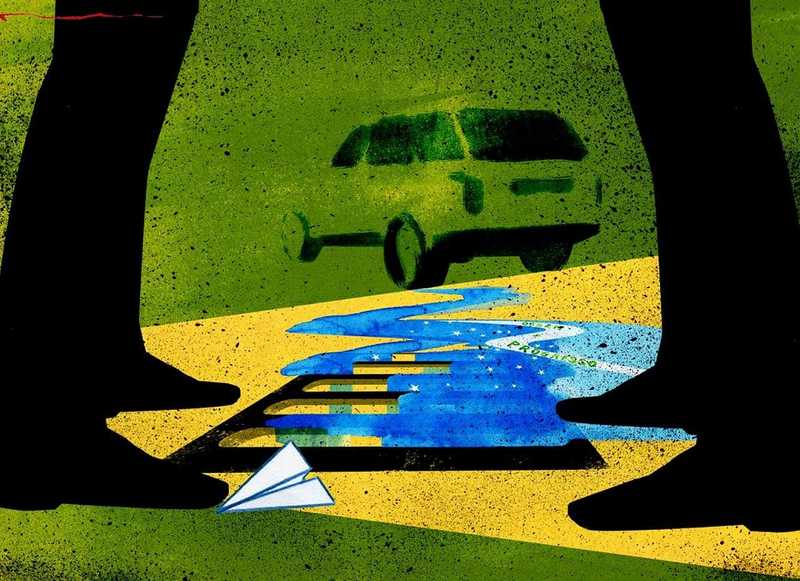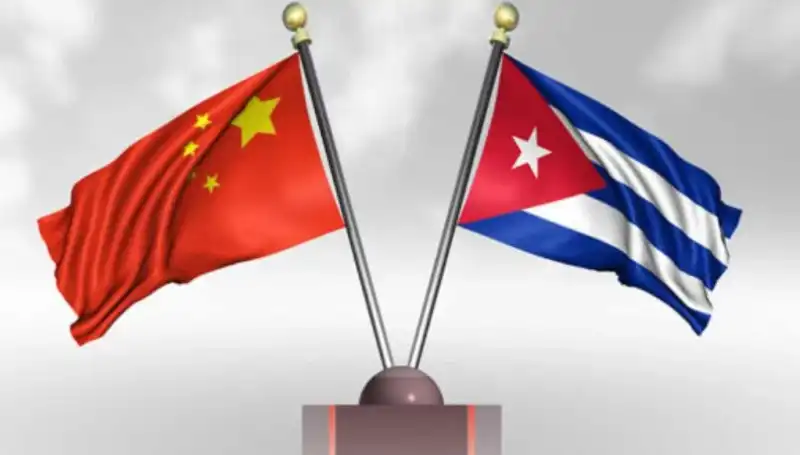
Editorial note: The following is an edited version of the article originally published by Wire partner Brasil Wire. It has been amended to provide context for the recent developments in the Lava Jato corruption case. You can find all of Brasil Wire’s articles on operation Lava Jato here.
“I’m going to celebrate today.”— Laura Tessler
“A gift from the CIA.”— Deltan Dallagnol
These recently leaked quotes refer to the arrest and jailing of former Brazilian President Lula da Silva in April 2018 that changed the course of the country’s history. It opened the door to far-right candidate Jair Bolsonaro, who came to power with the support of the United States and powerful corporate interests.
Although US involvement in the once heralded anti-corruption investigation operation Lava Jato has been publicly known for some time, leaked conversations between its prosecutors like Tessler and Dallagnol and Judge Sergio Moro have revealed a level of collusion that has shocked even the keenest observers.
A petition filed with the Federal Supreme Court (STF) by the defence of ex-president Lula presents such new evidence that ex-judge Sergio Moro colluded with foreign authorities in conducting the process which led to the arrest of the Workers Party leader, and his subsequent barring from a run for the presidency in 2018.
In the latest leaked Telegram conversations, which are now official court documents, the level of illegal collaboration visible between the Lava Jato task force and the internationally promoted judge is the most flagrant yet, and more valuable for Lula’s defence than chats first published by the Intercept in 2019.
The latest excerpts could result in the politically motivated case against Lula being annulled.
Ex-judge Sergio Moro and head of the Lava Jato task force Deltan Dallagnol have been accused of “treason” for their illegal collusion with United States authorities. In 2017, deputy US attorney general Kenneth Blanco boasted at an Atlantic Council event of informal (illegal) collaboration with Brazilian prosecutors on the Lula case, citing it as a success story. In 2019 the U.S. Department of Justice attempted to pay the Lava Jato task force a $682 million dollar kickback, ostensibly for them to set up a “private foundation to fight corruption”.
On April 5, 2018, the day Lula was arrested by Moro, prosecutor Isabel Grobba revealed the news: “Moro orders Lula to be arrested,” and Deltan Dallagnol replied: “Before MA (Supreme Court Justice Marco Aurélio) screws everything up.” Dallagnol was referring to what Marco Aurélio was then preparing; a Supreme Court vote which would potentially see defendants such as Lula freed from jail pending their second appeal.
Had this passed, it would’ve enabled Lula to run for president at the 2018 election. Polling at that point showed him twenty points ahead of nearest rival, U.S. backed far right candidate Jair Bolsonaro.
After coming to power, Jair Bolsonaro and Sergio Moro — who had been appointed as Bolsonaro’s Justice Minister — made an unprecedented visit to CIA headquarters in Langley, with the backing of Wall Street.
The FBI has also massively increased its reach in Brazil since the election and was in direct, legal and illegal collaboration with Lava Jato task force since its inception, with its main liaison and now head of FBI’s international corruption unit, Leslie Backschies, boasting that it had “toppled Presidents in Brazil”.
Cooperation between Brazilian and United States authorities, including the use of FBI hackers to break encrypted files, had become clear long before the arrest of the ex-president. Messages from August 31, 2016, when Dilma Rousseff faced her final impeachment hearing, already prove this.
FBI use of hackers in Brazil dates back to 2012 when they encouraged a group from ‘Anonymous’ to attack Brazilian government and corporate institutions and online infrastructure, in a staged protest against “corruption”. Sérgio Bruno revealed: “Janot (Prosecutor General) was with people from the US Embassy last week and it seems that he commented on this [breaking into files via illegal means], without going into details (sic)”. On the same day, Brazilian prosecutor Roberson Pozzobon also mentions the task force’s cooperation with FBI hackers: “We asked to see if the FBI has the expertise to break (into encrypted files)”.
The following year, Janot toured the world promoting Operation Lava Jato at investor events, both in the United States, and at the World Economic Forum in Davos, describing the now-disgraced anti-corruption operation as “pro-market”, a political position it was not supposed to have. Cooperation with Swiss and Swedish authorities is also evident from the leaked conversations.
A recent announcement has stated that Lava Jato, or Car Wash, as it was relentlessly promoted in the English-speaking media, will be shut down completely later this year, having helped wreck Brazil’s economy and eviscerate its democracy.
Illustration by Ann Kiernan.






